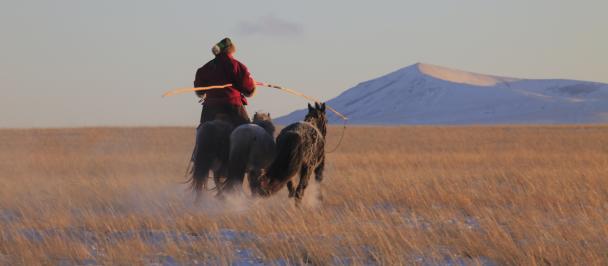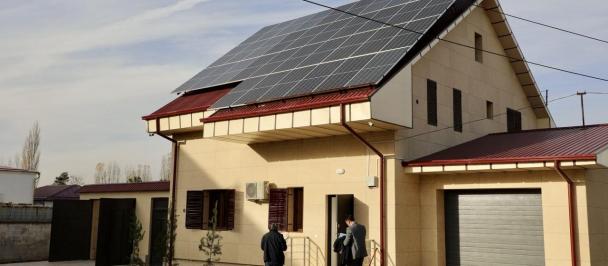Once the fourth largest lake in the world, the Aral Sea has been shrinking since the 1960s, and people’s health, food and jobs have vanished along with it. But the region is once again looking towards a sustainable future.
In Muynak, once a bustling Uzbek fishing community on the shore of the Aral Sea, ships lie stranded.
The Aral Sea, which lies between Uzbekistan and Kazakhstan, used to provide life and livelihoods to millions of people. Today it’s a ten percent of its original size and, the loss of its fishing industry has brought economic hardship to many.
The lake began shrinking as water from the rivers that fed it was diverted for large-scale irrigation and cotton production. With high temperatures, evaporation and little precipitation, it's now only 10 percent of its original size.
This has caused major challenges: fishing ports and farming lands are dry, drinking water is scarce, and dust and salt from the exposed sea bed have increased the region’s mortality rate. Children and mothers are particularly at risk: the levels of environmental pollutants like dioxins in the blood of pregnant women and nursing mothers are among the highest in the world.
A challenge of this calibre requires a new way of working. At UNDP we are trying to systematically transform the way we operate: experimenting more and being better at connecting policy with the latest innovative thinking.
We recently put together a multidisciplinary team that includes both innovation, technology and policy specialists—covering water management, rural development, climate finance and climate adaptation—to work with Uzbek and international partners in the region of Karakalpakstan.
The team is helping uncover key barriers to an integrated solution and what we’ve learned from previous attempts to tackle the Aral Sea challenge.
This is a move away from solutions that compartmentalize policy areas and objectives into neat boxes. That may be easy to evaluate but has little to do with messy realities.
Our initial work shows that improving water management is key to a sustainable future; one that improves livelihoods, strengthens food supply, and makes the land habitable again.
We’re aiming to tackle the root causes of the Aral Sea challenge and achieve systemic change to ensure that people in communities like Muynak have sustainable livelihoods, good health, clean water and fresh air.
We brought on board a multidisciplinary team of experts in order to attract eco-innovations and technologies to the region and to propose the best practical solutions to the Government of Uzbekistan was discussed during the International High-level Conference on the Aral Sea on 24-25 October. We will use the outcomes of the conference to define the next steps.
To find out more about how UNDP supports countries to tackle complex development challenges, click here.
Connect with us! @UNDP_Uzbekistan @UNDP_SDGs #SDGintegration

 Locations
Locations


